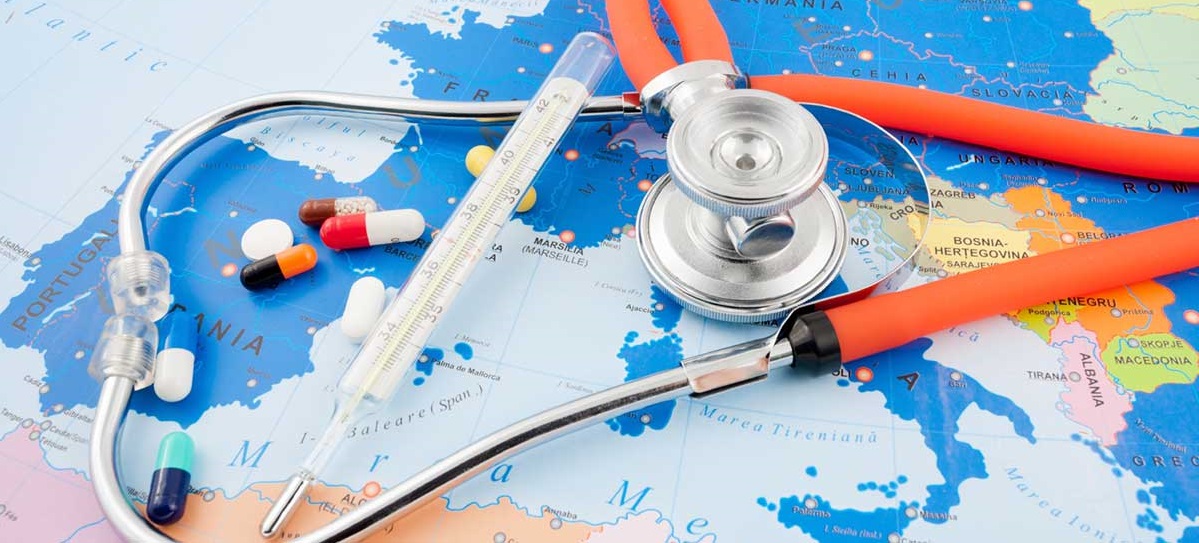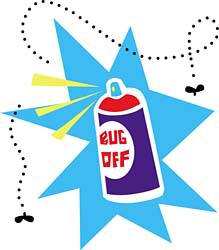
Traveling abroad can be a great experience. However, when traveling internationally, you may be exposed to various diseases, that can make you ill and possibly ruin your trip. Our Bremo Pharmacists have provided their top 5 tips for ensuring that you are a healthy and safe during your entire trip!
IMMUNIZATIONS
If you are travelling to certain areas of the world, you may need specific immunizations to protect yourself or to enter the country. In rural or remote areas of the world, there is a higher chance of contracting certain diseases, especially if there is not clean water. Additionally, certain times of the year may put you at a higher risk of contracting diseases (ie. patients are at a higher risk for developing meningitis between December and June when traveling through certain areas of Africa). Immunizations are a simple and effective solution to prevent contracting these harmful, and possibly fatal, diseases. The Centers for Disease Control and Prevention (CDC) and the World Health Organization (WHO) create guidance documents and recommendations regarding what immunizations you should receive before you travel. Some examples of immunizations you may need are hepatitis A, typhoid and yellow fever.
- Hepatitis A can help to protect you from getting sick if you consume contaminated food or water. Hepatitis A can damage your liver, which may not be reversible. To complete the series and receive immunity against Hepatitis A, the CDC recommends that you receive one shot before you leave on your trip and a second immunization 6 months later.
- Typhoid can also be contracted through contaminated food and water. If you contract typhoid, you can experience dangerously high fevers, nausea, vomiting, diarrhea, and headache. If left untreated, typhoid can be life-threatening. This immunization can be given via injection, which lasts for 2 years, or via oral capsules, called Vivotif, which lasts for up to 5 years.
- Yellow fever can be spread through mosquito bites and is prevalent in certain regions of South America and Africa. If you get yellow fever, you can have a wide variety of symptoms, such as self-limiting common cold symptoms or severe liver damage. If you are travelling to certain areas of the world, you may need a certificate of vaccination or prophylaxis before you are able to enter the country. This one time immunization requires a travel consultation with a pharmacist, as there are possible side effects from the immunization and specific documentation that must be completed.
TRAVELER’S DIARRHEA
Traveler’s diarrhea is the most common travel-related illness and unfortunately, can cause much discomfort during your trip. While traveling, choose to eat foods that do not increase your risk for diarrhea. Eat foods that have been cooked or are served hot and avoid raw fruits and vegetables unless they have been washed in clean water, such as bottled water. Additionally, choose clean water sources and avoid possibly contaminated sources, such as tap water and ice. Visit your doctor or Bremo Pharmacy’s travel clinic prior to travelling to get a prescription for an antibiotic, such as azithromycin. An antibiotic can be taken with you and can be used in case you experience traveler’s diarrhea. Several over the counter medications, such as Imodium, can also be purchased to treat symptoms of diarrhea.
SUNSCREEN
It’s important to always wear protective clothing, such as hats and loose clothing, and sunglasses when you are traveling. Use sunscreen with SPF 30 or higher if you are going to be spending time outside and in the sun. When choosing a sunscreen product, look for “blocks UVA and UVB” or “Broad Spectrum” on the label. Apply liberally at least 20 minutes before sun exposure to all exposed skin (including ears, neck, top of feet, back of hands). Also, it is important to wear chapstick that has SPF in order to protect your lips as well.
BUG SPRAY
Some diseases like Zika, Dengue, Yellow Fever, and West Nile Virus are spread through mosquito bites, so preventing mosquito bites if you are travelling is essential. These diseases can be spread mostly in regions of South America and Africa, but traveling to other areas of the world, such as the United States, Asia, and Central America, can put you at risk as well Cover exposed skin by wearing long sleeved shirts, long pants and hats. Clothes, as well as sleeping bags, mosquito nets, hats, and more, can be treated with permethrin, a pesticide approved by the EPA to protect clothing and gear from insects when appropriately treated. When choosing a bug spray product, it is important to look for products that contain DEET. Higher percentages provide longer protection. When using sunscreen and bug spray, apply the sunscreen first and bug spray second. Read more about Ways to Safeguard Against the Zika Virus.
MEDICATIONS
Make sure you take enough of your medication to last your entire trip, plus a little extra in case of delays or emergencies. Pack all medications and medical supplies in carry-on luggage. Medications should be in their original prescription bottles with the prescription label attached. If you are going to be gone for long periods of time, talk with your doctor or pharmacist to be sure you have enough medication for the entire trip.
Interested in traveling abroad? Unsure of what you will need to stay safe and healthy? Make an appointment with one of our pharmacists at least 4-6 weeks before traveling. For $50, a pharmacist will meet with you to ensure that you have all of the proper documentation, immunizations, and medications before your trip! You can also learn more regarding this service by reviewing How to “Travel Smart”. This all-inclusive service will allow you to feel safe, stay healthy, and enjoy your trip! Call 804-288-8361, ext. 117 or ext. 120 to set up an appointment today!


